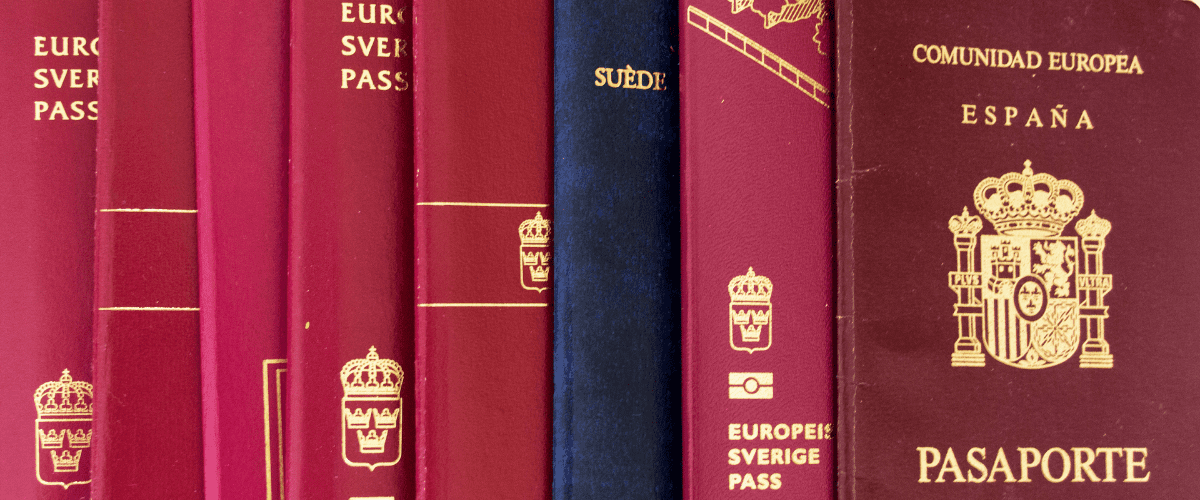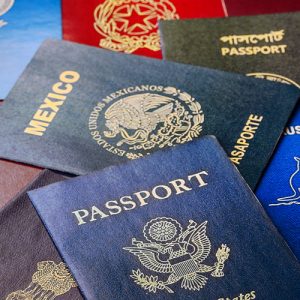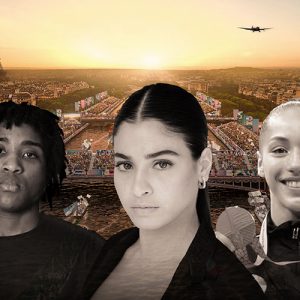Industry News

Dual Citizenship Prevails This Winter Olympics 2022
- Posted on Feb 03, 2022
- In Global Citizenship
A record number of Olympic athletes have found more mobility, freedom, and opportunity by holding more than one passport.
Every four years, the Olympics bring together the best athletes on the planet to celebrate perseverance, dreams, hard work and human potential. Athletes, delegates and supporters alike don their country’s national colours, wave their flag, and revel in each appearance on the podium. After all, a medal won at the Olympics serves as a great source of pride for the country and its people.
Interestingly, this nationalistic mentality wasn’t always a characteristic of the Games. At the first modern Olympics, held in Athens in 1896, the event did not call for organized national teams – individual amateur athletes simply competed against each other. To this day, it remains unclear which countries, or even how many, competed at the first Summer Olympics.
“While the Olympics connect people across the globe and strive to promote peace and sportsmanship, they have also become a pursuit of national glory,” says Armand Arton, president and CEO of Arton Capital. “However, competing for just one nation no longer reflects the reality of our globalized world, where many people have ties to multiple places.”
Indeed, hundreds of Olympians hold dual citizenships and compete for countries other than their place of birth. During the 2018 Winter Games in Pyeongchang, South Korea, 178 athletes – or about 6% of total participants – competed for a non-native nation. And in Beijing 2022, it’s safe to expect that number to increase, seeing as dual citizenship is on the rise worldwide.
In addition, there are many in-roads to dual citizenship for top-tier athletes. The US, for instance, offers its EB-1 visa for people of “extraordinary abilities” and recruited athletes from Poland, Kenya, New Zealand and China, among others, to TeamUSA ahead of the 2008 Summer Games in Beijing. In the 2020 Summer Olympics in Tokyo, which took place in 2021 due to COVID-19, at least 34 of the 600 TeamUSA Olympians were born outside the US.
In other instances, Olympians tap into ancestry to achieve dual citizenship. One example is Keegan Messing, an Alaskan-born figure skater who will compete for Team Canada at this year’s Winter Games. His great-great-grandfather was the first Japanese immigrant in Canada and some of his family still resides there. “I’ve always loved my Canadian roots,” Messing told the Anchorage Daily News, attributing his early love of figure skating to Canadian Olympic icons like Kurt Browning and Elvis Stojko.
Cultural identity can be another strong motivating factor. Eileen Gu was raised on the mountains of Lake Tahoe in California but ultimately chose to represent China as a freestyle skier in Beijing. Gu was immersed in traditional Chinese language and culture growing up, and spent her childhood summers with family in Beijing.
“The opportunity to help inspire millions of young people where my mom was born, during the 2022 Beijing Olympic Winter Games, is a once-in-a-lifetime opportunity to help to promote the sport I love,” Gu wrote of her decision to ski for China.
And for some athletes, establishing a new nationality is the only way to fulfill their dream of competing at the Olympics. It’s only natural to explore all the options – after all, the Games can lead to fame, fortune and glory. Carlijn Schoutens grew up in the Netherlands but would have struggled to make the powerhouse Dutch speed skating team. But since she was born in New Jersey and held a US passport, Schoutens elected to skate for TeamUSA in the 2018 Games – and subsequently won a bronze medal.
Ahead of the 2010 Winter Olympics in Vancouver, Canada, the Republic of Georgia granted Michigan-born ice skater Allison Reed citizenship so she could compete with her Georgian ice dancing partner, Otar Japaridze. Ahead of Beijing 2022, Reed applied for a Lithuanian passport to skate with her new partner, Lithuania’s Saulius Ambrulevičius, but the country denied her request.
“Looking at the bigger picture, Olympians with multiple passports reflect the outdated notion and limitations of single-country citizenship. It’s time to stop letting nationality hold us back and inhibit our potential,” says Arton.“To truly bring people together and support global collaboration, the Olympics could shift the focus away from national teams and back to individual athletic talent, regardless of citizenship.”
Related news

The Hidden Battlefield: Freedom, Identity and Mobility
2025-06-17The Hidden Battlefield: Freedom, Identity and Mobility
Why Global Citizens Hedge with Mobility. Not all conflicts begin with the sound of sirens.
Global Citizenship, Industry News
The Wealth Exodus: Redrawing the Demographic Map
2025-05-20The Wealth Exodus: Redrawing the Demographic Map
How Political Shifts Are Fueling Global Citizenship Maps aren’t just about land. Sure, geography shows
Global Citizenship, Industry News
Sovereignty by Choice: Beyond the Illusion of Borders
2025-05-02Sovereignty by Choice: Beyond the Illusion of Borders
Why the World’s Wealthiest are Investing in Second Citizenship Did you know that only 1
Global Citizenship, Industry News
A Sporting Summer – Breaking Down Barriers for a Brighter Future
2024-08-12A Sporting Summer – Breaking Down Barriers for a Brighter Future
Boundaries are meant to be broken. On and off the field. We are currently lucky
Arton Capital, Global Citizenship, Industry News, The Olympics



